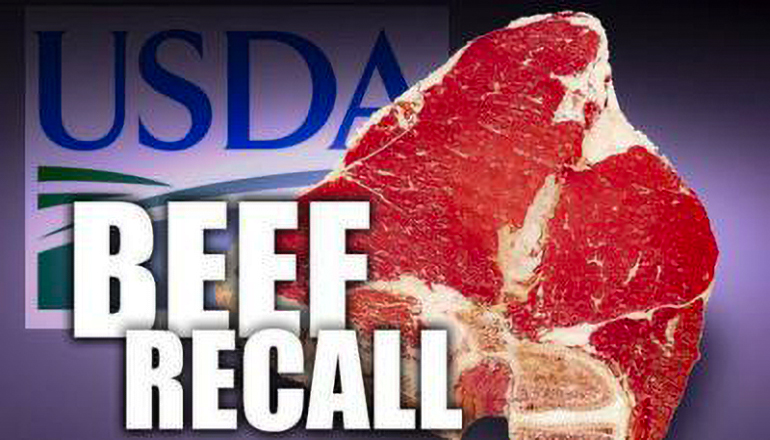Aurora Packing Company, Inc., a North Aurora, Illinois, company, is recalling 62,112 pounds of raw beef products due to possible E. coli contamination just days before the Memorial Day holiday weekend, according to a Thursday announcement from the U.S. Department of Agriculture’s Food Safety and Inspection Service.
The products were packaged on April 19 and shipped across the country for distribution. The recalled products will bear the establishment number “EST. 788” in the USDA mark of inspection. Possible contamination was found after “traceback activities” in response to random sample testing, according to a USDA release.
The problem was discovered during traceback activities in response to random sample testing by FSIS. There have been no confirmed reports of adverse reactions due to the consumption of these products.
Anyone concerned about an injury or illness should contact a healthcare provider. E. coli O157:H7 is a potentially deadly bacterium that can cause dehydration, bloody diarrhea and abdominal cramps 2–8 days (3–4 days, on average) after exposure the organism. While most people recover within a week, some develop a type of kidney failure called hemolytic uremic syndrome (HUS). This condition can occur among persons of any age but is most common in children under 5-years old and older adults. It is marked by easy bruising, pallor and decreased urine output. Persons who experience these symptoms should seek emergency medical care immediately.
FSIS is concerned that some product may be in institutional facility freezers. Institutions who have purchased these products are urged not to use them. These products should be thrown away or returned to the place of purchase.
E. coli can cause dehydration, bloody diarrhea and abdominal cramps two to eight days after exposure. Most recover from symptoms within a week, but people can develop hemolytic uremic syndrome, a form of kidney failure.
The USDA release states the organization is concerned that the recalled products may be in institutional facility freezers and urges institutions that have purchased the products not to use them.
A full list of the products, including different steak cuts, that are affected can be found at THIS LINK.







